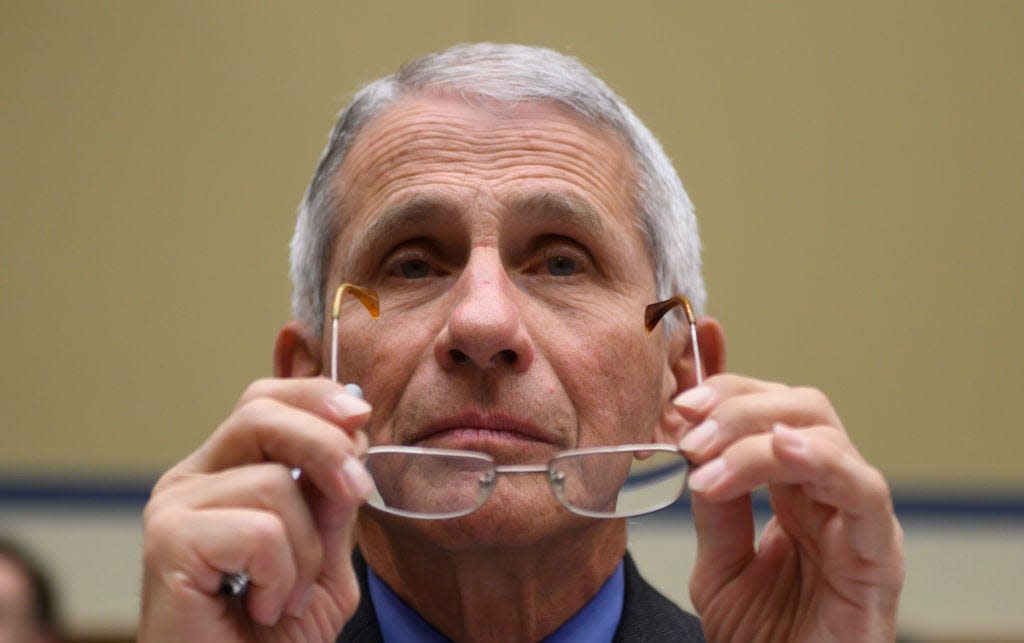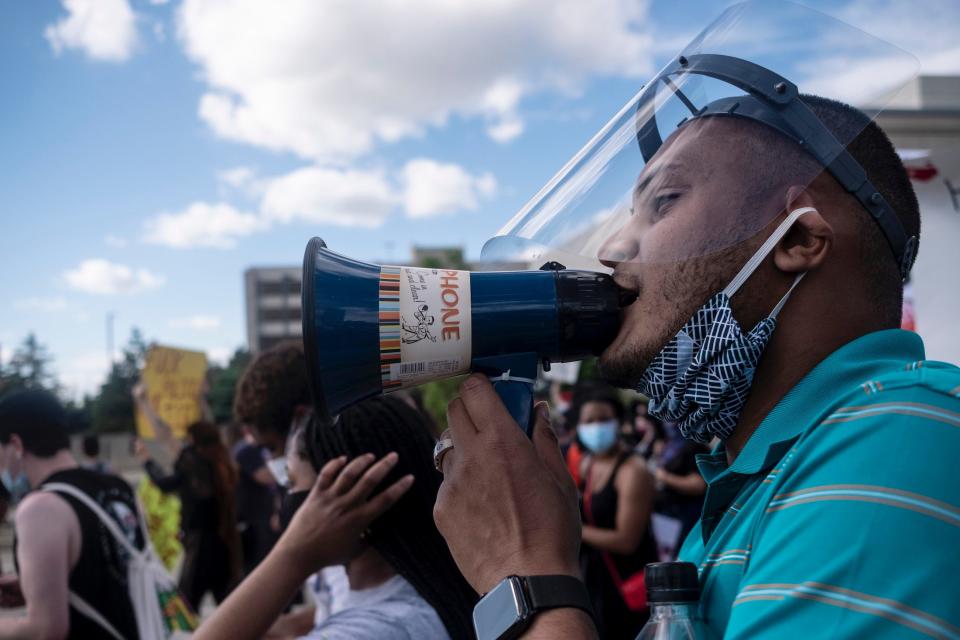Anthony Fauci said eye coverings might eventually be recommended in the US: 'You should probably use it if you can'

ANDREW CABALLERO-REYNOLDS/AFP via Getty Images
Dr. Anthony Fauci said eye coverings might eventually be recommended to reduce coronavirus transmission.
"If you have goggles or an eye shield, you should use it," Fauci told ABC on Wednesday.
However, face masks are more important for preventing transmission, since most people get infected via respiratory droplets.
To maximize your chances of avoiding a coronavirus infection, it's wise to cover your eyes, Dr. Anthony Fauci said on Wednesday.
"If you have goggles or an eye shield, you should use it," Fauci, the director of the National Institute of Allergy and Infectious Diseases, told ABC health correspondent Dr. Jennifer Ashton. "It's not universally recommended, but if you really want to be complete, you should probably use it if you can."
The Centers of Disease Control and Prevention already recommends eye protection for healthcare workers, but not for everyday use. That's because eyes aren't the main source of coronavirus transmission — the virus spreads primarily via respiratory droplets when someone talks, coughs, or sneezes. Others then get infected when these droplets enter their nose or mouth, though the virus can invade through any mucous membrane, including the eyes.
Related: Dr. Fauci warned the Senate about reopening economy
"Theoretically, you should protect all the mucosal surfaces," Fauci said, but he added, "it's just that it's so easy for people to just make a cloth mask."
Dr. Deborah Birx, the White House coronavirus response coordinator, also suggested using face shields as an added layer of protection on Thursday.
"The thing about the face shields — we think that that could protect the individuals and that it would decrease the ability for them to touch their eyes and spread [the] virus as well as those droplets coming towards them," Birx told "Fox & Friends."
Eye coverings might play a role in reducing transmission

Matthew Hatcher/Getty Images
Public-health guidelines aren't set in stone.
At the start of the pandemic, the US population wasn't told to wear face masks. But the practice is now universally recommended due to the discovery that asymptomatic patients can pass the coronavirus just as easily as patients with symptoms. Scientists also discovered that cloth coverings still help, meaning medical-grade masks aren't the only option, so asking the public to wear masks doesn't come at the expense of safety for healthcare workers.
It's possible that a similar process could happen with eye coverings if the US does not get its outbreak under control, though masks are far easier to make and procure.
A June review in The Lancet found that eye coverings like goggles, face shields, or visors might substantially reduce coronavirus infections.
"Eye protection is typically under-considered and can be effective in community settings," the researchers wrote. "However, no intervention, even when properly used, was associated with complete protection from infection."
For now, the CDC says face shields aren't a substitute for cloth face masks. According to the agency, "it is not known if face shields provide any benefit as source control to protect others from the spray of respiratory particles."
Swiss health officials recently warned that face shields could offer a false sense of security, after an outbreak at an hotel involved only people who wore plastic face shields. Those who wore masks or a combination of a face mask and a shield were not infected.
Do glasses help?
Standard eyeglasses offer less protection than goggles or shields, since the virus can enter through the top, bottom, or sides. But glasses could still discourage a person from touching their eyes with unwashed hands, reducing the risk that the person could get sick after touching a coronavirus-laden surface.
In March, the American Academy of Ophthalmology suggested that people may want to switch from contact lenses to glasses to avoid touching their eyes. But the CDC has said there's no evidence that contact lens-wearers have a higher risk of infection than eyeglass wearers.
"I don't think the issue is so much the contact lenses as it is hand hygiene before inserting or taking out the contact lenses," Dr. Gregory Poland, an infectious-diseases expert, told the Mayo Clinic in April.
Indeed, the Lancet study found that face masks and eye coverings shouldn't be a replacement for social distancing or hand-washing. But a person could lower their risk by implementing the measures in tandem.
Read the original article on Business Insider
